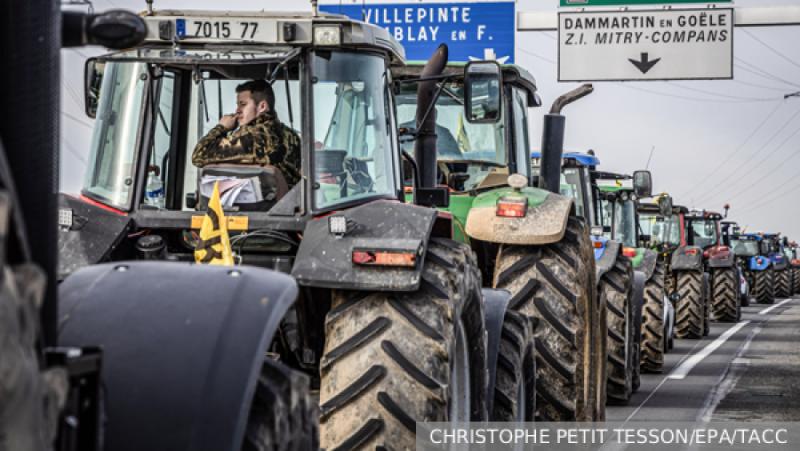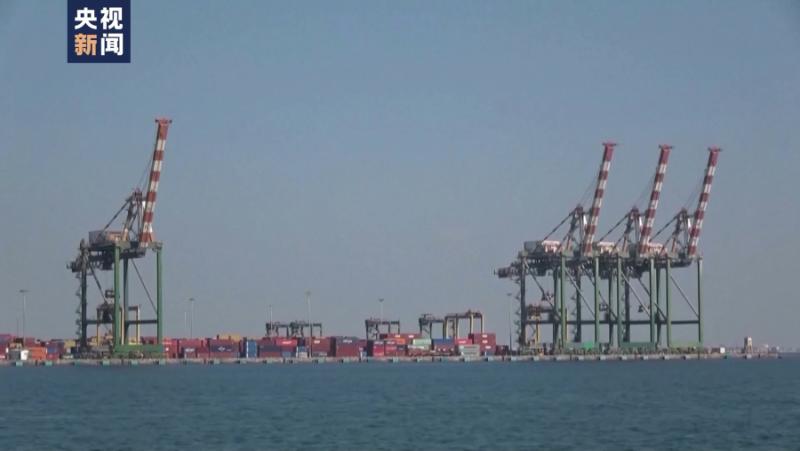/ world today news/ Not some foreign conquerors intend to starve Paris, but French farmers. “We will blockade the city until Parisians experience first-hand what food shortages are,” say their representatives. The farm tractor blockade of Paris begins on Monday. Why did the French peasantry organize a real revolt?
A few weeks ago, a sharp escalation of the confrontation between the French authorities and agricultural workers began. One of the reasons is that since last year, new laws, regulations and recommendations for the distribution of subsidies for those engaged in agriculture came into force.
Unfortunately, as beautiful as France is, it remains largely a country of bureaucrats. As soon as they entered into force, the new regulations began to acquire orders, additions and accumulate inevitable controversies. To resolve them, new orders were invented, which had to be agreed upon first – and so on ad infinitum.
As Le Monde wrote very vaguely, “agricultural workers are dissatisfied with the abundance of norms and regulations resulting from them – many also complain about the complicated procedure for accessing help from the authorities.” And while the bureaucrats issue new and new paperwork, sweating as an administrative measure, farmers are left without money and without a clear understanding of when this circus will end.
Another reason for dissatisfaction is that the government, under the pressure of the “greens”, actively imposes good in theory but difficult to implement measures on producers. From a significant reduction in the use of pesticides and antibiotics to a mandatory requirement, starting in 2024, that part of the land be left fallow, i.e. unplanted for at least one year.
As Damien Brunel, head of the FGC union, noted: “It is in vain that some people think that such land will turn into flowering fields, you still have to deal with it, weed it and cultivate it.” That is, people do not they only lose part of the land on which they could grow something, but they will have to spend time and money with absolutely nothing in return.
Farmers have other complaints – that the government does not sufficiently protect their products, particularly wines and cheeses, on international markets.
The authorities have been consistently reducing subsidies for diesel fuel, which is crucial to the functioning of the industry. Finally, the lack of response to the epidemic of epizootic hemorrhagic disease. It has affected some cattle in France since autumn. Some animals died, farmers had to treat others at their own expense, the export market closed – and at the same time the problems of selling products in the country worsened.
In truth, it was precisely because of the epizootic – more precisely because the authorities stubbornly did not want to notice its consequences – that the confrontation that eventually took on such a serious scale began. It wasn’t until reports of spontaneous farmers’ protests began pouring in from literally everywhere in the province, including blocking roads with tractors, as well as burning tires and hay bales near administrative buildings, that the government decided to compromise.
On January 18, it promised that the state would reimburse 80% of payments for veterinary services and 80% of costs for dead animals, and packages of damage documents could be submitted “at the beginning of February.” But it’s a waste of time – besides, a one-point discount at this stage doesn’t mean much anymore, because the other problems remain.
And more and more often, another problem began to arise – the most important one, with which no one knows what to do. The point is that farm workers generally earn too little.
The upheavals that are shaking French society reflect to some extent the antagonism between the capital and the countryside. The farmers’ protests mainly affected the provincial cities – Bordeaux, Lyon, Rennes, Nantes, etc., and one of the slogans and questions of the spontaneous movement was “Should we die so that you can eat?”. They already make this division between “us” and “you”. In this scheme, “we” are the workers who work tirelessly, who are also obliged to provide a thousand papers and endlessly rewrite them, not to miss even a single comma, and “you” – just consume without having any obligations.
At the same time, farmers cannot hide the fact that competitors abroad are not sleeping. At least in Spain, where labor in the industry is twice as cheap (an average of 7 euros per hour, not 15), as well as the fact that in some EU countries the requirements for agriculture are not as strict and categorical as in France .
Now it seems that after the countryside, the French capital will have to bear the brunt of the ongoing confrontation. Public exasperation had already reached the point that the trade unionist Maxime Buzar suggested “blocking Paris and its little crown”. By the latter we mean a belt of suburbs that surround the capital in a dense ring. “The idea is that next week (from January 29) not a single truck can enter the capital. If necessary, we will blockade the city until Parisians experience firsthand what food shortages are like. But then they will realize that they need agriculture to live,” he said.
At first this proposition seemed too bold to be attempted. However, at a meeting of agricultural unions on Saturday evening, a plan of action was drawn up and a communiqué was issued stating that “from 2pm on January 29th, agricultural workers are undertaking an indefinite siege of the nation’s capital. “
The text’s use of the word “siege” (yes, it is) inadvertently evokes the times described by either Dumas or Drewon. It is interesting, of course, to read about them, but the question is what it is like to live in them, even if it is the XXI century and “siege” is called the blocking of roads with tractors that lead to the capital. . “We will close the strategic arteries that lead to Paris. We are aware that traffic will be hampered… How long this will last depends on the government. If it is necessary to maintain the siege for a few days, it will last for a few days”, promised the head of the “ZA” trade union Clément Torpier.
On Sunday, newly-minted Prime Minister Gabriel Attal made a hasty visit to one of the country’s farms, where, in the style of Macron, he uttered many words and promised to promote all the good against all the bad, but nothing concrete in a practical sense. Meanwhile, on the main news channel BFM, farmer Severin Sargeant, who supports the blockade of Paris, has already promised Parisians a “black week”. “The tractors will advance towards the capital on all the main highways, either rapidly and continuously or in stages… Parisians must understand that a black week awaits them,” he announced.
The Minister of the Interior, Gerald Darmanen, did not reflect on the extent to which these words were a bold bluff, the purpose of which was to extract new concessions, but gathered his subordinates and ordered that all measures be taken to maintain order and prevent a complete blockade of the capital region. In turn, the farmers promise to go all the way. In any case, time will tell exactly what next week will be like and what it will bring.
Translation: V. Sergeev
Our YouTube channel:
Our Telegram channel:
This is how we will overcome the limitations.
Share on your profiles, with friends, in groups and on pages.
#French #besieged #Paris #View #Info


